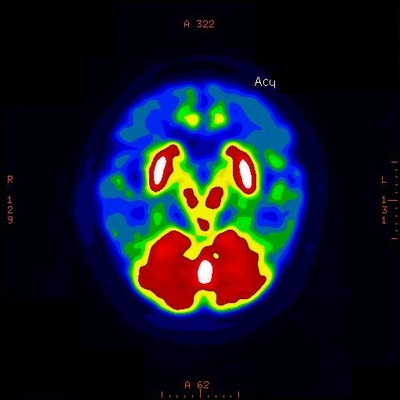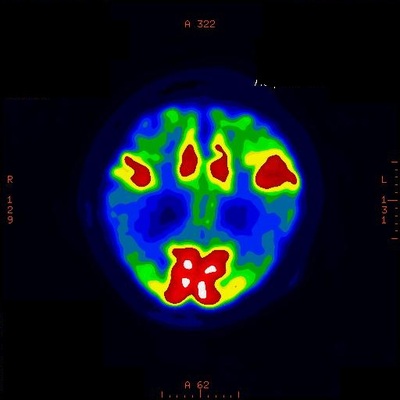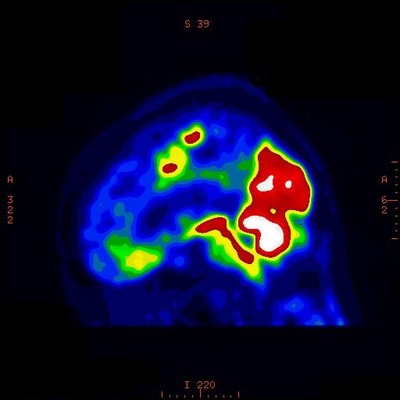This PET CT study demonstrated almost complete absence of blood flow to most of the surface of the brain with the exception of the very posterior portion of both hemispheres (occipital cortex). This part of the brain is responsible for interpreting vision. In addition, there are some ‘islands’ neurons deep in the white matter responsible for processing incoming sensory information called the thalamus. This study shows that the thalami were healthy. This is compatible with end-stage dementia. It’s impossible to speculate at the underlying disease (Alzheimer’s, Pick’s Disease, Primary Progressive Aphasia, etc) based on this imaging study as the disease is too advanced.
PET CT



 RSS Feed
RSS Feed
